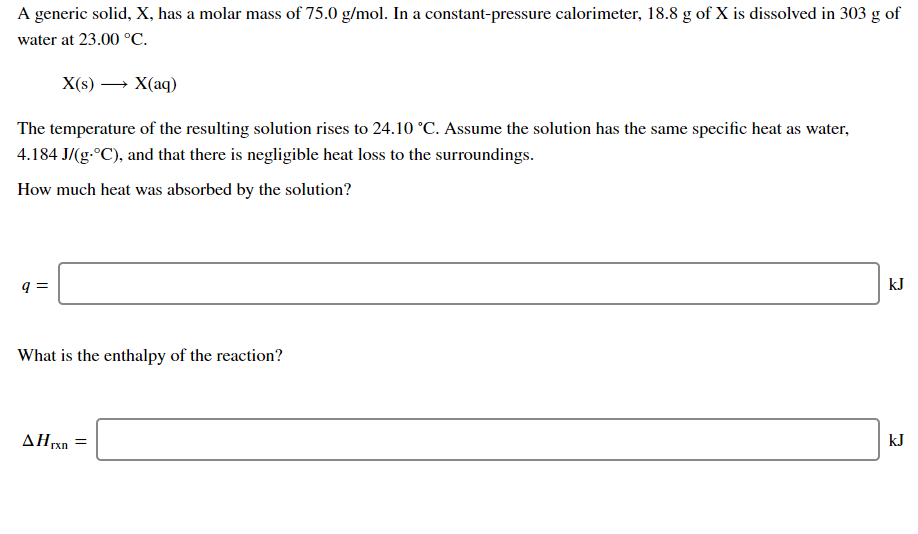A generic solid, X, has a molar mass of 75.0 g/mol. In a constant-pressure calorimeter, 18.8 g of X is dissolved in 303 g of water at 23.00 °C. X(s) → X(aq) The temperature of the resulting solution rises to 24.10 °C. Assume the solution has the same specific heat as water, 4.184 J/(g.°C), and that there is negligible heat loss to the surroundings. How much heat was absorbed by the solution? q = kJ What is the enthalpy of the reaction?
Thermochemistry
Thermochemistry can be considered as a branch of thermodynamics that deals with the connections between warmth, work, and various types of energy, formed because of different synthetic and actual cycles. Thermochemistry describes the energy changes that occur as a result of reactions or chemical changes in a substance.
Exergonic Reaction
The term exergonic is derived from the Greek word in which ‘ergon’ means work and exergonic means ‘work outside’. Exergonic reactions releases work energy. Exergonic reactions are different from exothermic reactions, the one that releases only heat energy during the course of the reaction. So, exothermic reaction is one type of exergonic reaction. Exergonic reaction releases work energy in different forms like heat, light or sound. For example, a glow stick releases light making that an exergonic reaction and not an exothermic reaction since no heat is released. Even endothermic reactions at very high temperature are exergonic.

Trending now
This is a popular solution!
Step by step
Solved in 2 steps with 2 images









